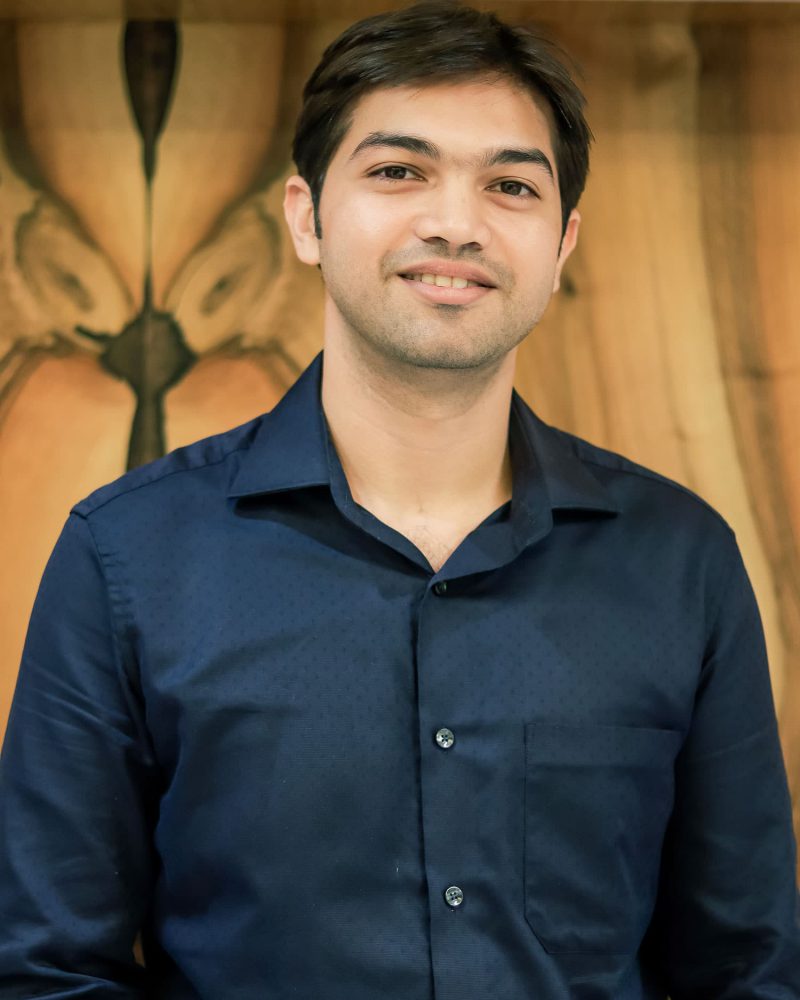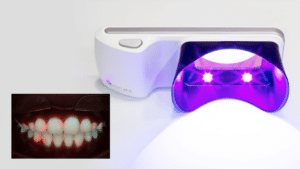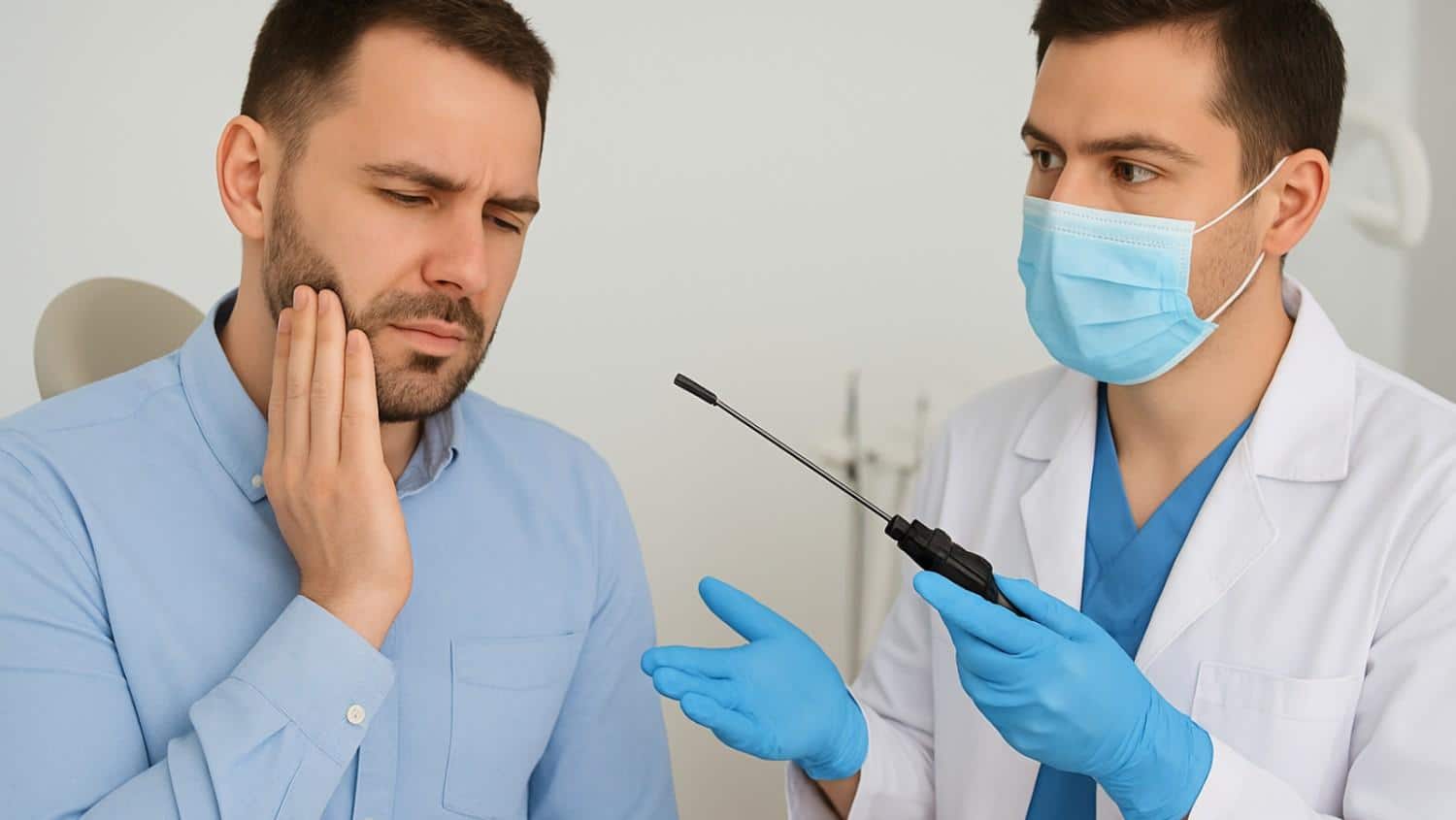Have you ever experienced a clicking sound in your jaw or pain that makes chewing difficult? If yes, you’re not alone. Millions suffer from temporomandibular joint disorders (TMJ disorders), a condition that affects the hinge joint connecting your jaw to your skull.
When lifestyle changes, medications, and therapy fail to relieve persistent pain, specialists often recommend a minimally invasive procedure called TMJ arthroscopy.
If you’re considering TMJ arthroscopy, we will walk you through everything you need to know, what it is, how it works, recovery, risks, and why expertise matters.
What is TMJ Arthroscopy?
TMJ arthroscopy is a minimally invasive surgical technique used to diagnose and treat disorders of the temporomandibular joint. Instead of large incisions, it uses a tiny camera (arthroscope) inserted through a small cut near your ear. This camera sends real-time images to a monitor, allowing the surgeon to see inside the joint without the need for open surgery.
When is it recommended?
- Persistent pain in the temporomandibular joint area despite medication and physiotherapy.
- Jaw locking or severe restriction in mouth opening, or deviation of the mouth when opening.
- Clicking or popping sound with discomfort.
- Suspected internal joint damage that needs direct visualization.
Why is this important? Because temporomandibular joint disorders don’t just cause pain, they impact your ability to eat, speak, and live comfortably. For such cases, arthroscopic TMJ surgery is often the next step after conservative care fails to give relief.
How Does TMJ Arthroscopy Work?
The TMJ arthroscopy procedure is performed under general anesthesia and involves several precise steps:
- Preparation and Positioning
The patient is positioned comfortably, and the area around the joint is cleaned and sterilized. - Tiny Incision
A very small cut (just a few millimeters) is made near the ear, over the TMJ area. - Insertion of the Arthroscope
A thin tube with a high-definition camera and light source is inserted through this incision. The camera transmits real-time images of the joint’s internal structures. - Treatment Steps
Depending on the findings, the surgeon can:- Flush out debris and inflammatory fluid from the joint.
- Remove adhesions that restrict movement.
- Smooth irregular bone surfaces to improve function.
- Administer medication directly into the joint.
- Irrgularly displaced disc can also be repositioned using advanced techniques.
- Flush out debris and inflammatory fluid from the joint.
- Closure and Dressing
Once complete, the incision is closed with a tiny suture or left to heal naturally. Most patients return home the same day.
Why is this considered advanced? Because the surgeon can diagnose and treat in one procedure, making it faster, safer, and more efficient compared to open joint surgery.
Why Choose TMJ Arthroscopy Over Open Joint Surgery?
Many patients wonder whether they should choose TMJ arthroscopy or open surgery. Here’s why arthroscopy is usually the preferred option:
- Minimally invasive: Only a small incision is required, reducing tissue trauma.
- Lower risk of complications: Open surgeries carry a higher risk of nerve damage and scarring.
- Faster recovery: Patients often resume normal activities within days instead of weeks.
- Reduced pain and swelling: Thanks to smaller incisions and minimal disruption.
- Daycare procedure: Most patients do not need overnight hospitalization.
However, open surgery may still be needed for complex joint reconstruction. Your TMJ surgeon will decide the best approach based on your condition.
Is TMJ Arthroscopy Safe?
Yes, TMJ arthroscopy is considered safe, especially when performed by an experienced TMJ surgeon. The procedure has been widely used worldwide with excellent success rates.
Risks are minimal but can include:
- Mild bleeding or infection.
- Temporary swelling or stiffness in the jaw.
- Rarely, temporary facial nerve weakness.
With proper post-operative care and a skilled surgeon, these complications are extremely rare.
TMJ Arthroscopy Benefits and Risks
Benefits of TMJ Arthroscopy:
- Significant pain relief in most patients.
- Restoration of jaw movement and function.
- Minimally invasive, so smaller scars and faster healing.
- It can be combined with other treatments for the best results.
Possible Risks:
- Minor infection at the incision site.
- Persistent stiffness if rehabilitation is not followed.
- In rare cases, there’s a need for additional surgery.
Recovery After TMJ Arthroscopy
What happens after the procedure? Recovery is usually smooth and quick compared to open surgery, but it still requires care.
- Dietary Adjustments
You’ll start with a soft diet (soups, smoothies, mashed foods) for a few days to avoid stress on the joint. Gradually, you can return to normal eating. - Pain and Swelling
Mild swelling and discomfort are common for 2–3 days, easily managed with prescribed painkillers and cold compresses. - Physical Therapy
Your doctor may recommend jaw exercises to improve mobility and prevent stiffness. These are crucial for a successful outcome. - Follow-Up Visits
Regular check-ups ensure proper healing and joint function.
Most patients return to work within a week, but complete recovery may take a few weeks, depending on the complexity of the treatment.
Non-Surgical TMJ Treatment Options
Before considering TMJ joint surgery, most specialists will explore conservative approaches like:
- Medication: Anti-inflammatory drugs and muscle relaxants.
- Occlusal Splints: Bite guards to reduce strain on the joint.
- Lifestyle Modifications: Stress management, avoiding hard foods, and jaw exercises.
- Physiotherapy: Heat therapy and manual therapy for pain relief.
If these fail to bring relief, arthroscopic TMJ surgery becomes the logical next step.
TMJ Arthroscopy Cost in Pune
The TMJ arthroscopy cost in Pune can vary depending on:
- The severity of the condition and the procedure complexity.
- The hospital or clinic facilities.
- The experience of the surgeon.
Typically, costs are more affordable than open surgery due to shorter hospital stays and less invasive techniques. For exact estimates, consult an experienced TMJ surgeon in Pune or book a TMJ consultation at a reputed clinic.
Why Expertise Matters in TMJ Arthroscopy
Not all TMJ cases are the same. The outcome depends on the surgeon’s experience, the quality of equipment, and post-operative care. Always look for:
- A trusted TMJ dentist or maxillofacial surgeon.
- Internationally trained TMJ specialists with expertise in advanced techniques.
Clinics that provide comprehensive care, including diagnosis, surgery, and rehabilitation.
Where to Get TMJ Arthroscopy in Pune?
If you are searching for:
- Best clinic for TMJ arthroscopy in Pune
- TMJ arthroscopy specialist near me
- Book a TMJ consultation in Pune
Pandit Clinic, Pune, is a trusted destination for advanced maxillofacial TMJ surgery and minimally invasive treatments. The clinic works with highly skilled specialists like Dr. Vikram Pandit, a renowned Oral and Maxillofacial Surgeon who also consults at leading hospitals such as Poona Hospital and Research Centre, Ratna Memorial Hospital, and KEM Hospital.
Dr. Vikram Pandit’s expertise includes:
- Dr. Vikram Pandit has trained in TMJ arthroscopy from a well-reputed centre in Taiwan. The clinical fellowship included detailed diagnostic procedures, Level 1,2,3 arthroscopy, conservative treatments, etc.
- Clinical fellowship in craniofacial surgery, focusing on cleft lip and palate deformities, orthognathic surgery, and surgery for sleep-related breathing disorders (SRBD).
- Advanced training in facial trauma management from Taiwan.
- Contributor to academic literature and an invited speaker at national and international conferences.
With this extensive background, Dr. Vikram brings both technical precision and clinical excellence to every procedure, including TMJ arthroscopy in Pune.
Speak to a Maxillofacial Specialist About Your TMJ Pain
Final Thoughts
TMJ disorders can impact everything from chewing to speaking, making early and effective treatment essential. If conservative measures haven’t worked, arthroscopic TMJ surgery at Pandit Clinic, Pune, performed by expert consultants like Dr. Vikram Pandit, offers a safe, minimally invasive solution with faster recovery.
When it comes to something as vital as jaw function, trust a specialist who is internationally trained, experienced in complex maxillofacial procedures, and committed to patient care. With the right approach, you can regain pain-free movement and restore your quality of life.

Consult Dr Vikram Pandit
Oral & Maxillofacial Surgeon
Book a consultation with Dr Vikram Pandit. At the consultation, Dr Vikram Pandit will:
- Dr. Vikram Pandit will first perform a thorough examination of your teeth, gums and jaw.
- Explain the problem to you.
- An X-Ray of your teeth will be taken if needed.
We recommend you openly discuss your concerns with Dr. Vikram.
During the consultation be prepared to discuss:
- Your medical conditions, drug allergies, and previous dental treatments.
- Current medications, vitamins, herbal supplements, if any.
- Likely outcomes, and any risks or potential complications.
You Might Be Interested In

Do Dental Sealants Really Protect Your Child’s Teeth from Cavities
Let’s face it—molars are troublemakers when it comes to tooth decay in kids. They have grooves and pits where food loves to hide, making it

See What Your Teeth Are Hiding with Qscan Plus for Better Oral Health
Oral health is an integral part of overall well-being, yet issues like plaque buildup, cavities, and dental diseases often go unnoticed until they become serious problems. At Pandit Clinic, we prioritize cutting-edge solutions that enhance diagnosis and treatment precision.








